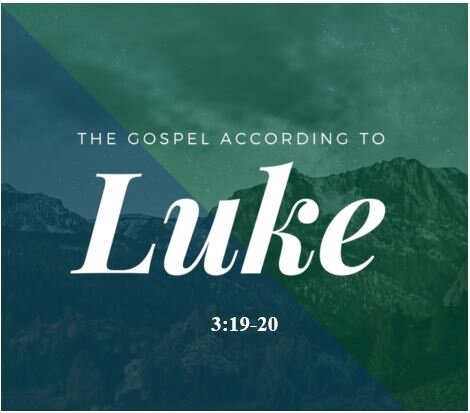BIG IDEA:
WICKEDNESS HATES THE LIGHT
INTRODUCTION:
John 3:19-20
“This is the judgment, that the Light has come into the world, and men loved the darkness rather than the Light, for their deeds were evil. For everyone who does evil hates the Light, and does not come to the Light for fear that his deeds will be exposed.”
It takes courage to confront powerful rulers with God’s truth when you know it could easily cost you your life. John the Baptist did not shrink back from his responsibility to confront Herod Antipas with his wickedness.
I. (:19) WICKEDNESS DESERVES REPROOF — HEROD REPROVED BY JOHN THE BAPTIST
A. Reproof for Singular Sin
“But when Herod the tetrarch was reproved by him on account of Herodias, his brother’s wife,”
Steven Cole: Herod had divorced his own wife and seduced Herodias, the wife of his half-brother, who was also his own niece. By so doing, he was guilty of both adultery and incest.
Jeremy Myers: If you ever have trouble keeping all of the Herods separate, that’s okay. There are six of them in the New Testament, and all of them are related in one way or another, not only as a ruling family, but also in crime and cruelty. This Herod is Herod Antipas, the second surviving son of Herod the Great. As we read in Luke 3:19, he was the tetrarch of Galilee. Although he was on okay ruler from Rome’s perspective, he was not a real nice man. He had all of the vices, but none of the good qualities of his father, Herod the Great. He was covetous, greedy, luxurious, corrupt, suspicious and cunning. All of this though is typical of most rulers of that day.
B. Reproof for Multitude of Sins
“and on account of all the wicked things which Herod had done,”
Apparently John was aware of additional transgressions as well.
II. (:20) WICKEDNESS RESISTS REPROOF — HEROD IMPRISONS JOHN
“he added this also to them all, that he locked John up in prison.”
Being a faithful communicator of God’s Word is often the pathway to rejection and persecution and unjust suffering.
Donald Miller: In his suffering, without knowing it, John was a forerunner of him who came to be the Suffering Servant (see Matthew 17:12, where Jesus connects John’s sufferings with his own).

